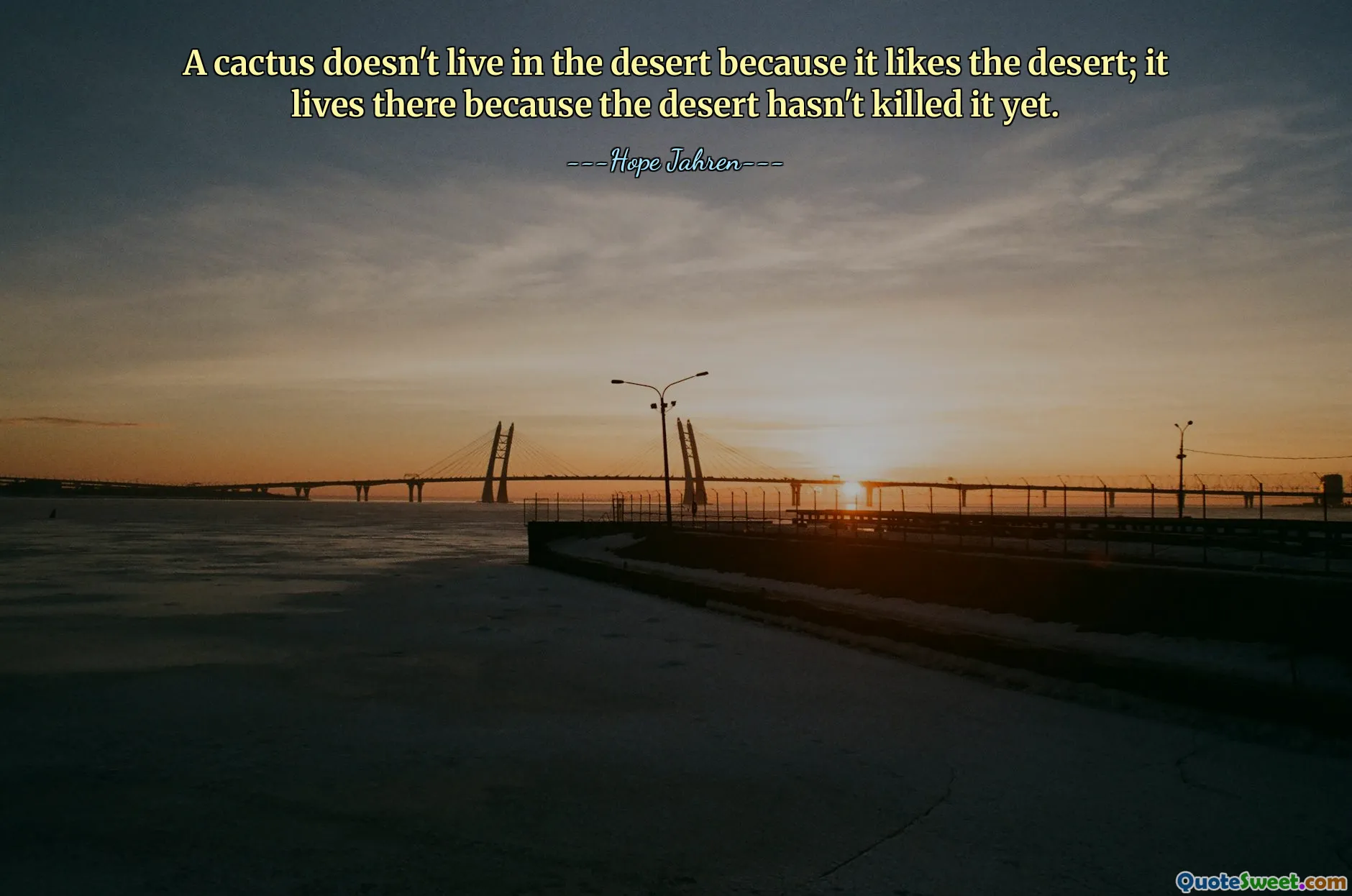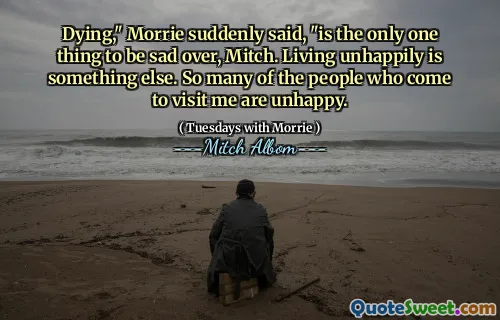
A cactus doesn't live in the desert because it likes the desert; it lives there because the desert hasn't killed it yet.
This quote highlights the complex relationship between survival and environment. At first glance, one might assume that the cactus thrives in the desert because it prefers the arid conditions. However, the deeper message suggests that existence often persists not because of preference or comfort, but because survival obstacles haven't yet overcome us. It's a reminder that resilience isn't always about choice but about endurance amid adverse circumstances. Sometimes, organisms or individuals remain in challenging environments not because they enjoy them, but simply because they have yet to be pushed beyond their limits. This perspective can be extended beyond nature to human experiences. People frequently stay in difficult situations, whether due to fear, uncertainty, or lack of alternatives, even if they long for something better. The quote prompts reflection on the nature of resilience: what does it mean to truly thrive versus merely survive? Is endurance a form of acceptance or a temporary state awaiting change? It also invites us to think about the obstacles that shape our lives and whether our persistence is driven by preference or merely circumstance. Recognizing this distinction can lead to a deeper understanding of personal motivation and the importance of intentional change. Sometimes, our persistence in harsh environments serves as a testament to our resilience but also highlights the need for growth and transformation to find environments where we can genuinely flourish. Ultimately, the quote encourages us to examine our circumstances and to consider whether we are truly thriving or simply enduring until change becomes possible.






